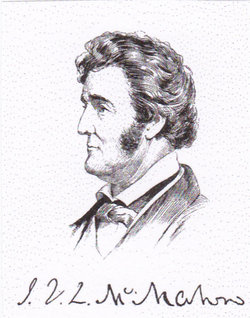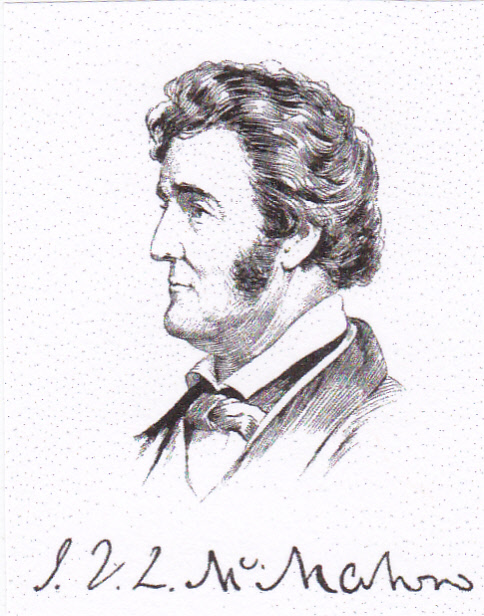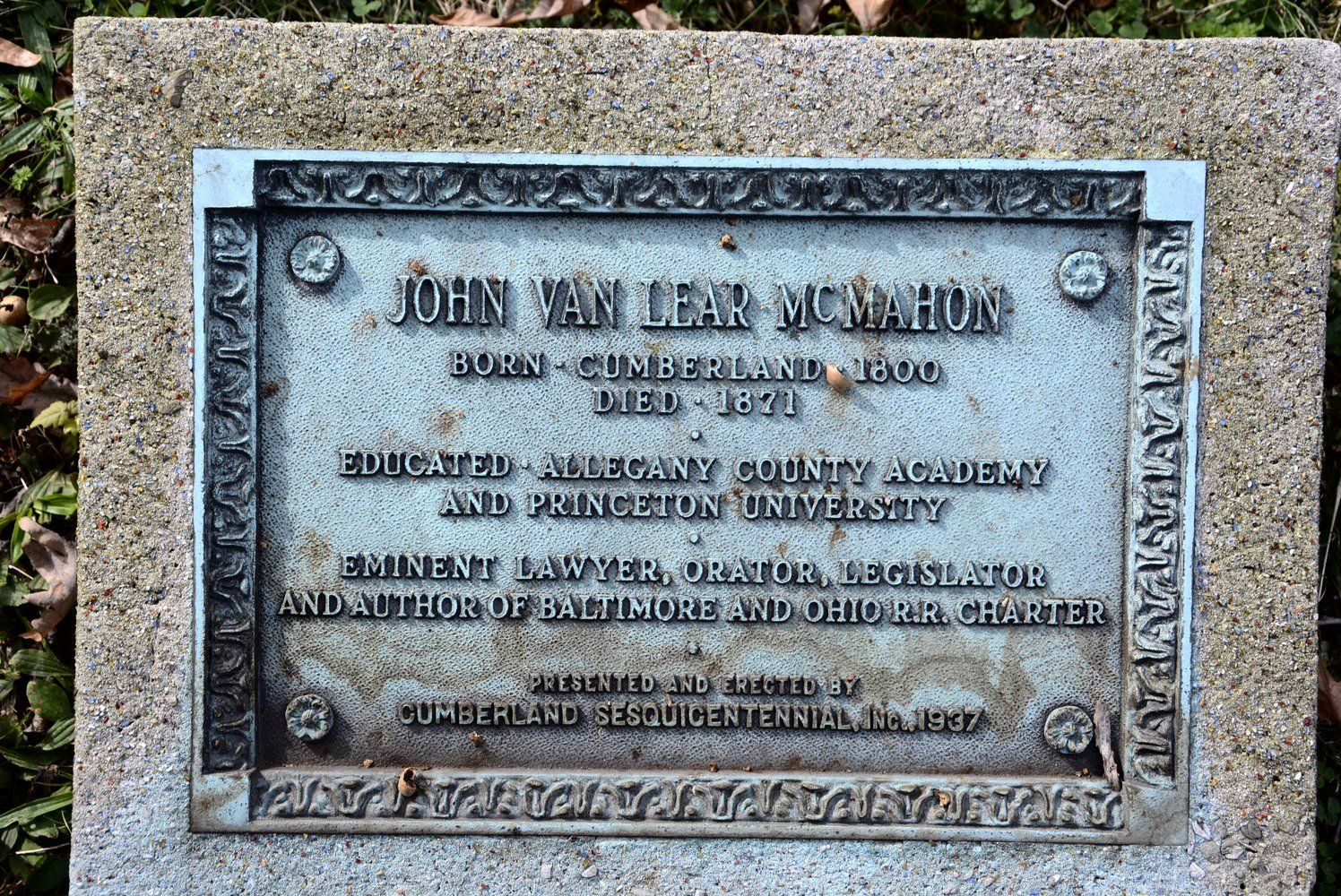Attended Allegany County Academy; College of New Jersey (later Princeton University); read law with Roger Perry. Admitted to the Bar, 1820.
Married Elizabeth Gouger; one child: John A. McMahon (1833-1923). Died in Cumberland, Maryland, June 15, 1871.
Practiced law in Baltimore and Cumberland in 1820s. Served in House of Delegates from Allegany County, 1823-1824; chair, Judiciary Committee.
Moved to Baltimore City in 1826; elected to House of Delegates from there in 1827 and 1828. Largely retired from public life and returned to practicing law. Declined numerous political positions, including nominations for the U.S. House of Representatives and Senate, the Chancellorship of Maryland, a judgeship on the Maryland Court of Appeals, a cabinet position under President William Henry Harrison, and U.S. Attorney General under President John Tyler. Elected to Maryland Senate, Western Shore, 1836; declined to serve. Chair, Whig Party National Convention, 1840.
Author of An Historical View of the Government of Maryland (1831).
McMahon established a reputation as a forceful and gifted, though occasionally abrasive, speaker. During the 1820s, McMahon was an active supporter of the "Jew Bill," the law to remove the requirement that all elected officials in Maryland swear to "a belief in the Christian religion." He also advocated for increasing Baltimore's representation in the House of Delegates, where even sparsely-populated counties had four representatives, while Baltimore City had only two, even though it had many more people. Although he was criticized at home in Allegany County--one of the sparsely-populated areas--McMahon defended his actions as being for the greater good of Maryland.
McMahon supported the construction of the Chesapeake & Ohio Canal and the Baltimore & Ohio Railroad; he was also the author of the B&O's incorporating charter.
Attended Allegany County Academy; College of New Jersey (later Princeton University); read law with Roger Perry. Admitted to the Bar, 1820.
Married Elizabeth Gouger; one child: John A. McMahon (1833-1923). Died in Cumberland, Maryland, June 15, 1871.
Practiced law in Baltimore and Cumberland in 1820s. Served in House of Delegates from Allegany County, 1823-1824; chair, Judiciary Committee.
Moved to Baltimore City in 1826; elected to House of Delegates from there in 1827 and 1828. Largely retired from public life and returned to practicing law. Declined numerous political positions, including nominations for the U.S. House of Representatives and Senate, the Chancellorship of Maryland, a judgeship on the Maryland Court of Appeals, a cabinet position under President William Henry Harrison, and U.S. Attorney General under President John Tyler. Elected to Maryland Senate, Western Shore, 1836; declined to serve. Chair, Whig Party National Convention, 1840.
Author of An Historical View of the Government of Maryland (1831).
McMahon established a reputation as a forceful and gifted, though occasionally abrasive, speaker. During the 1820s, McMahon was an active supporter of the "Jew Bill," the law to remove the requirement that all elected officials in Maryland swear to "a belief in the Christian religion." He also advocated for increasing Baltimore's representation in the House of Delegates, where even sparsely-populated counties had four representatives, while Baltimore City had only two, even though it had many more people. Although he was criticized at home in Allegany County--one of the sparsely-populated areas--McMahon defended his actions as being for the greater good of Maryland.
McMahon supported the construction of the Chesapeake & Ohio Canal and the Baltimore & Ohio Railroad; he was also the author of the B&O's incorporating charter.
Family Members
Advertisement
Records on Ancestry
Sponsored by Ancestry
Advertisement





